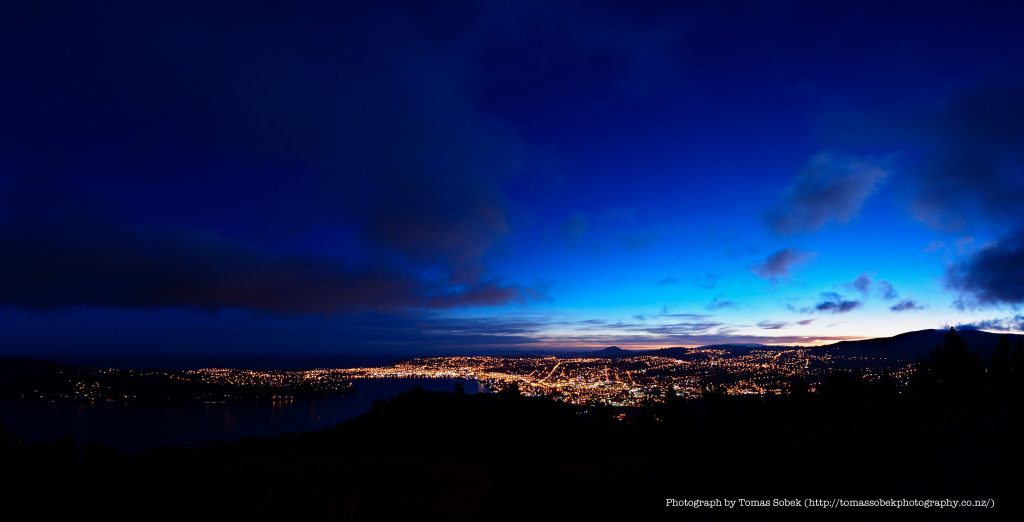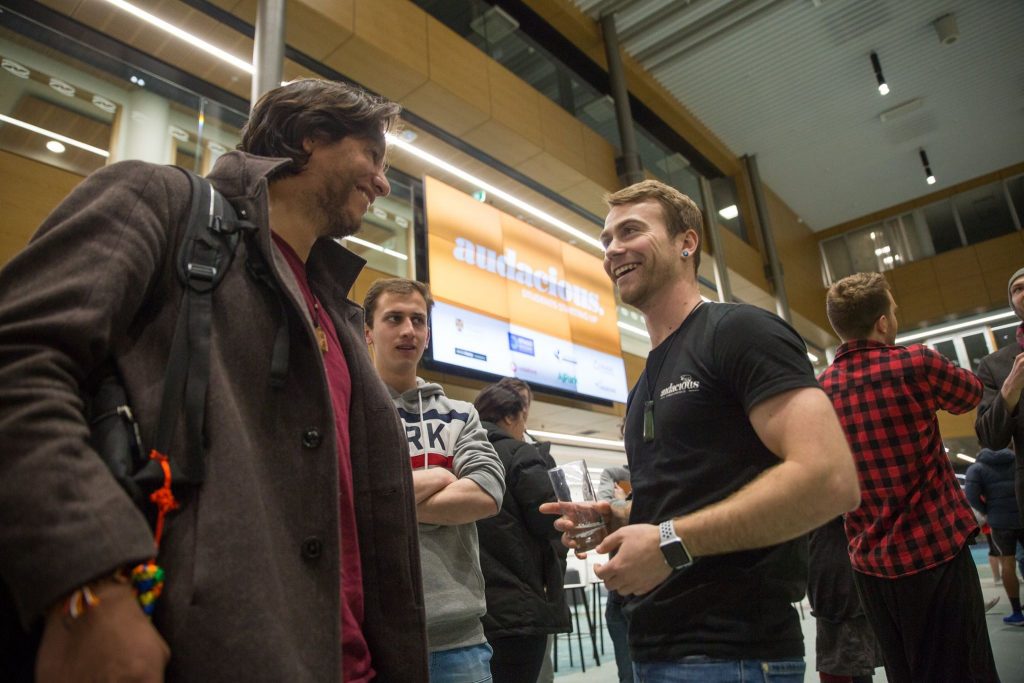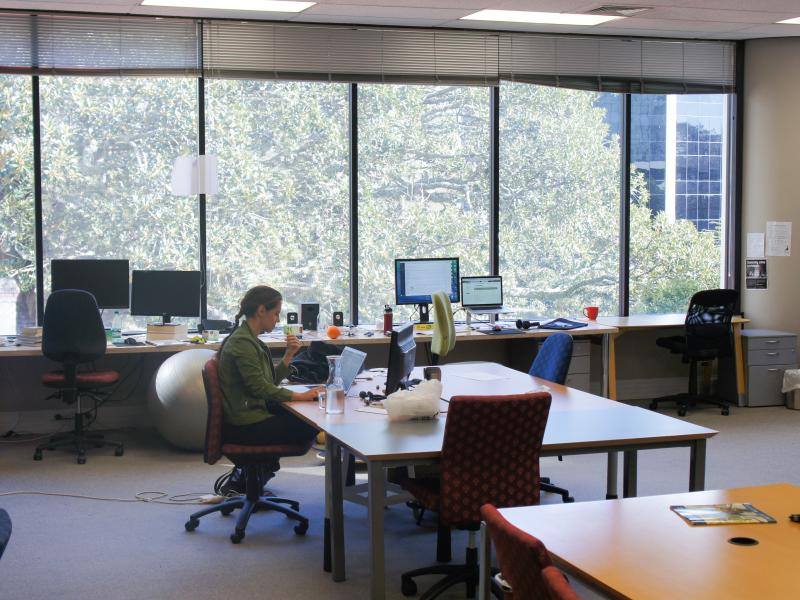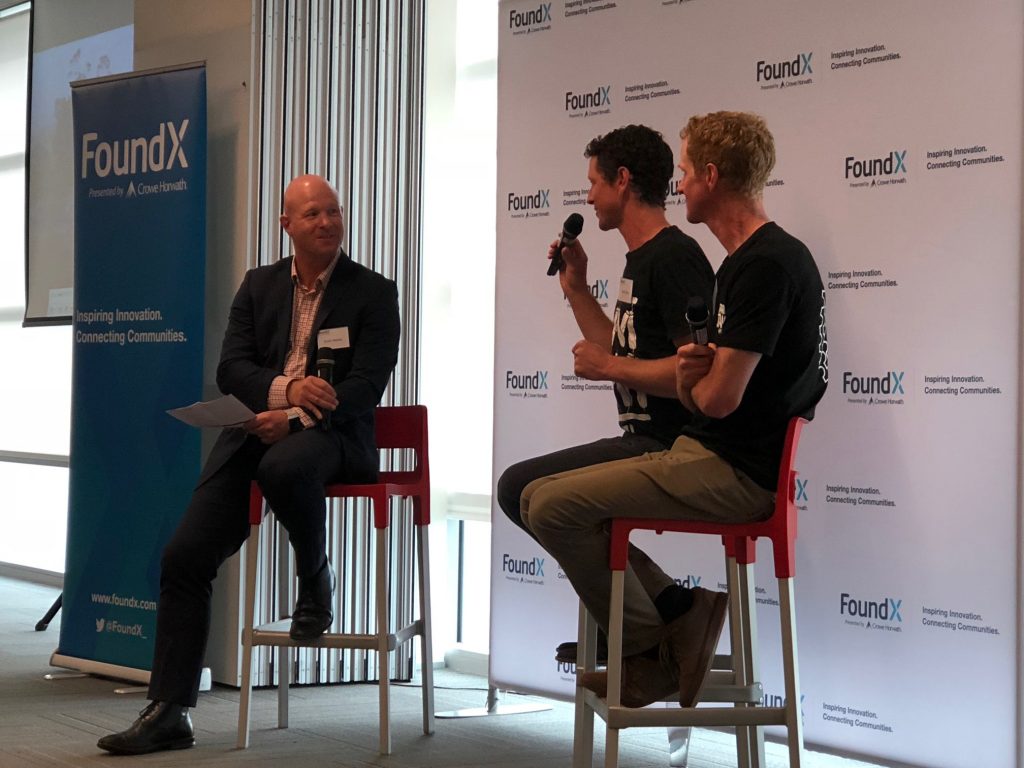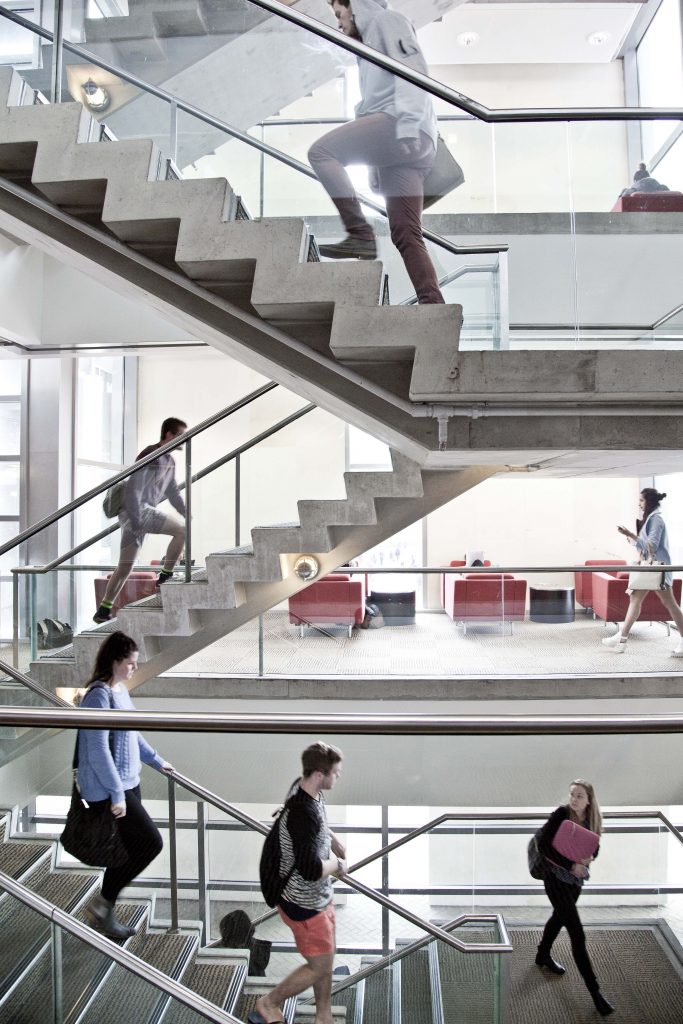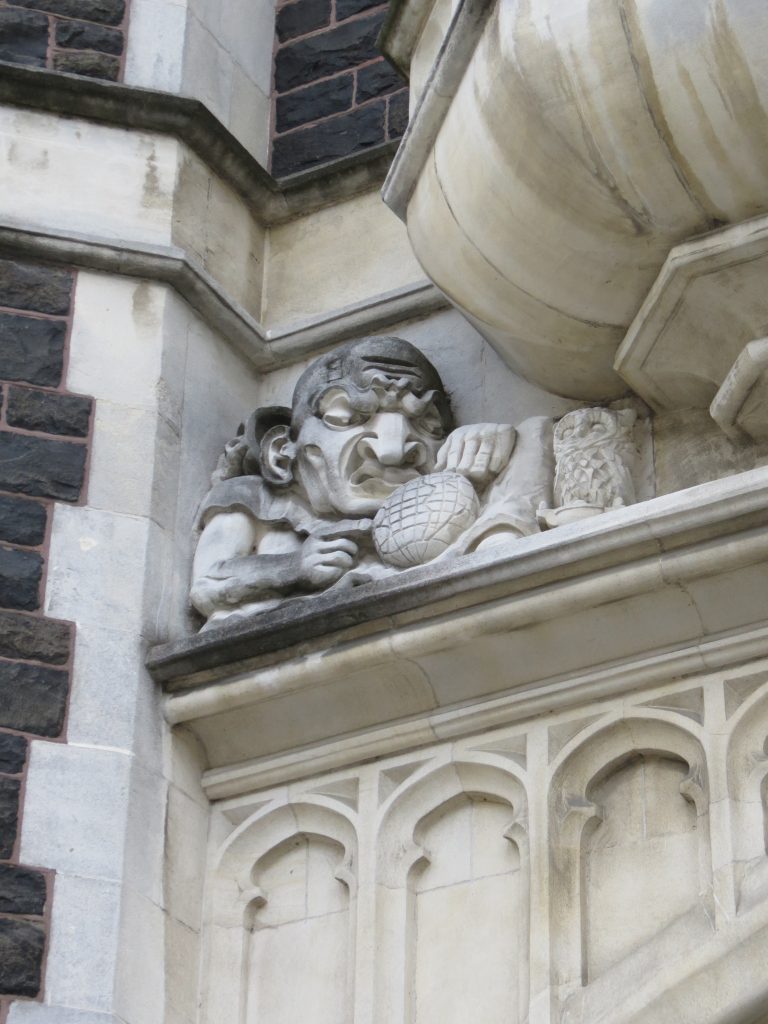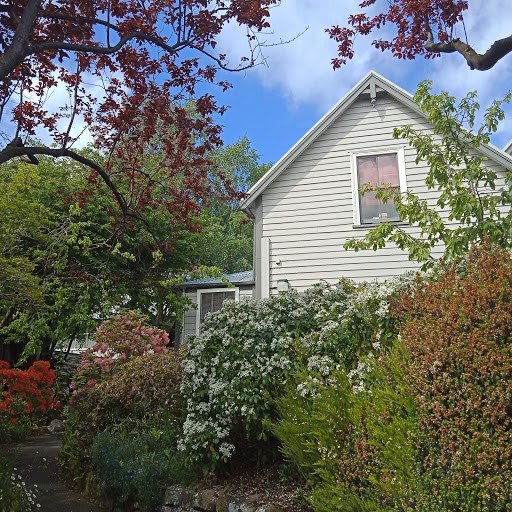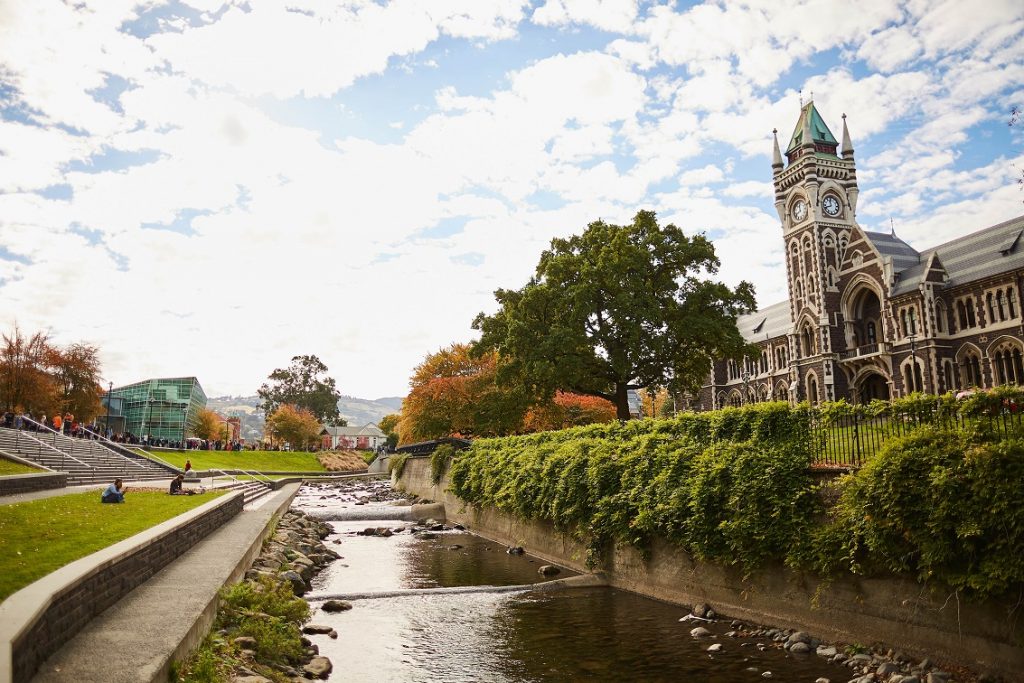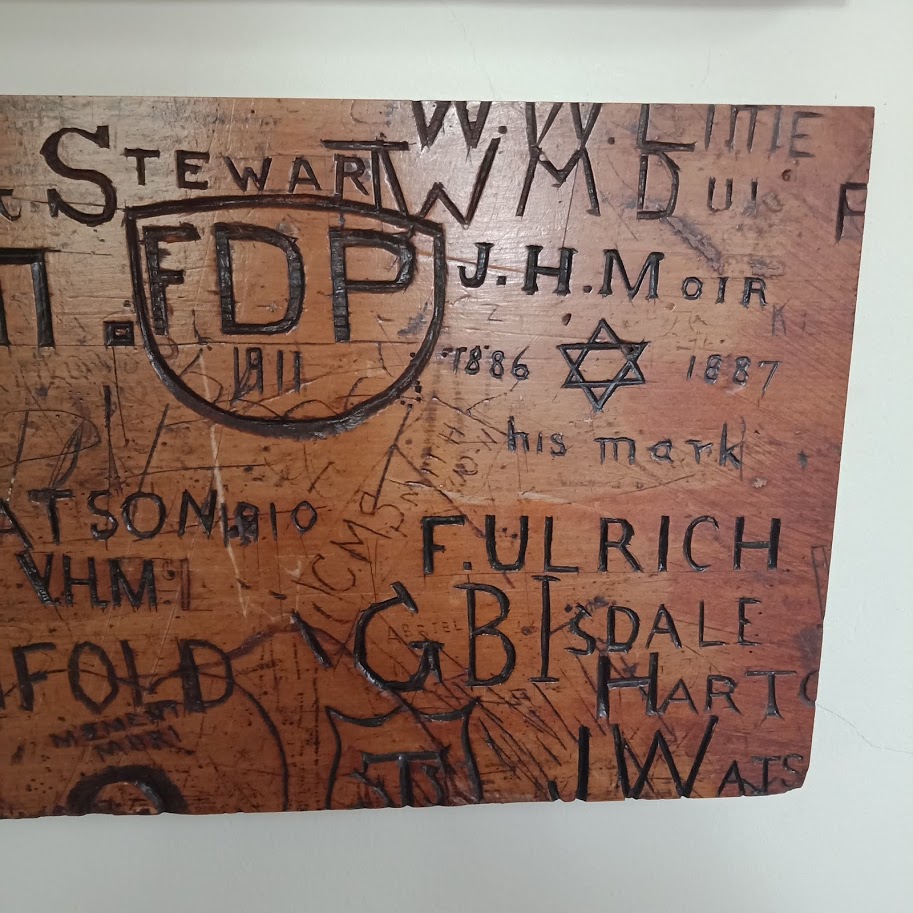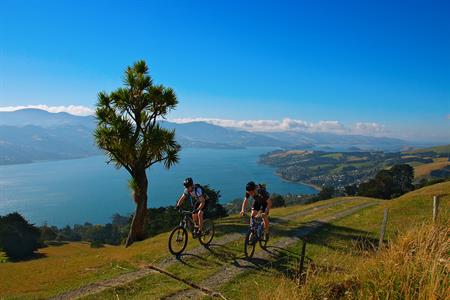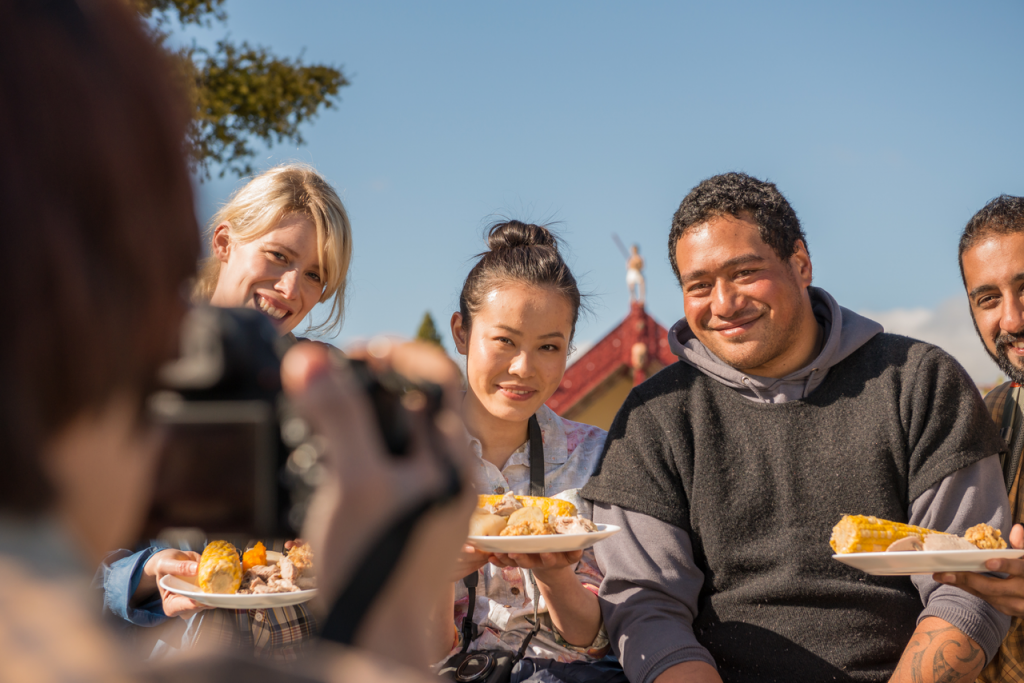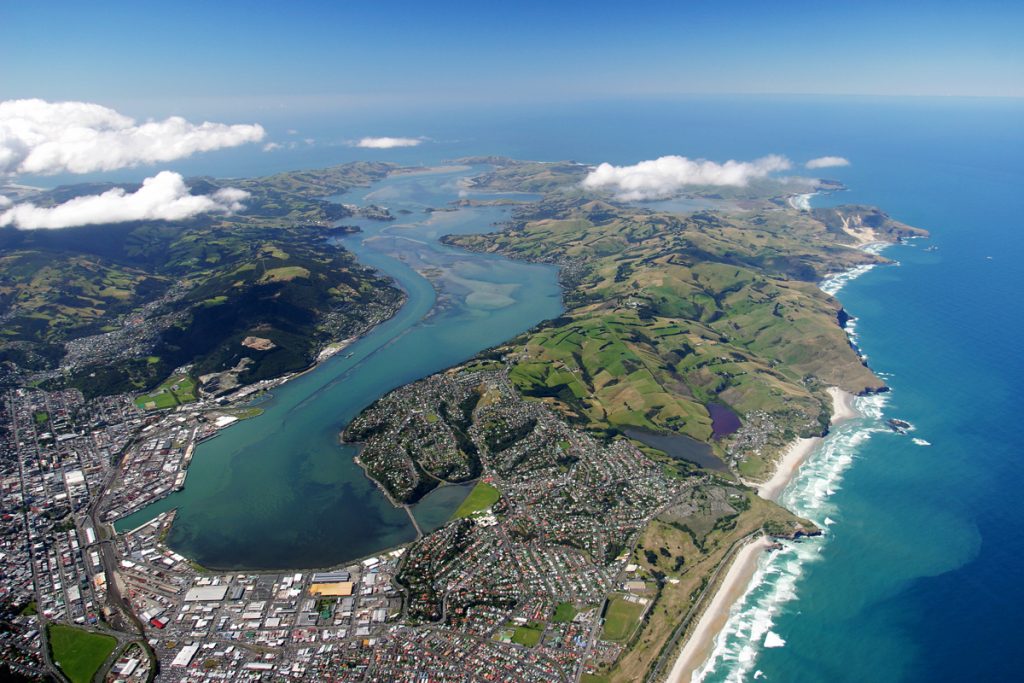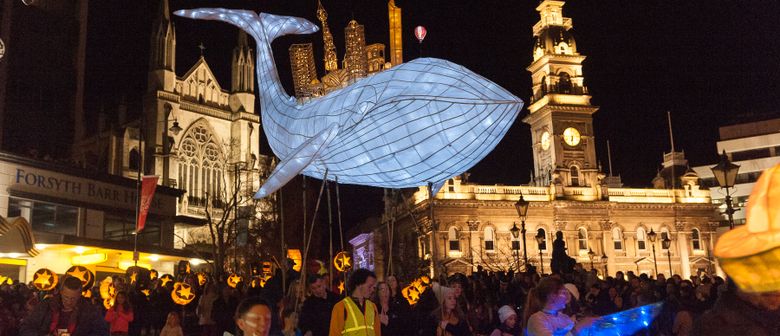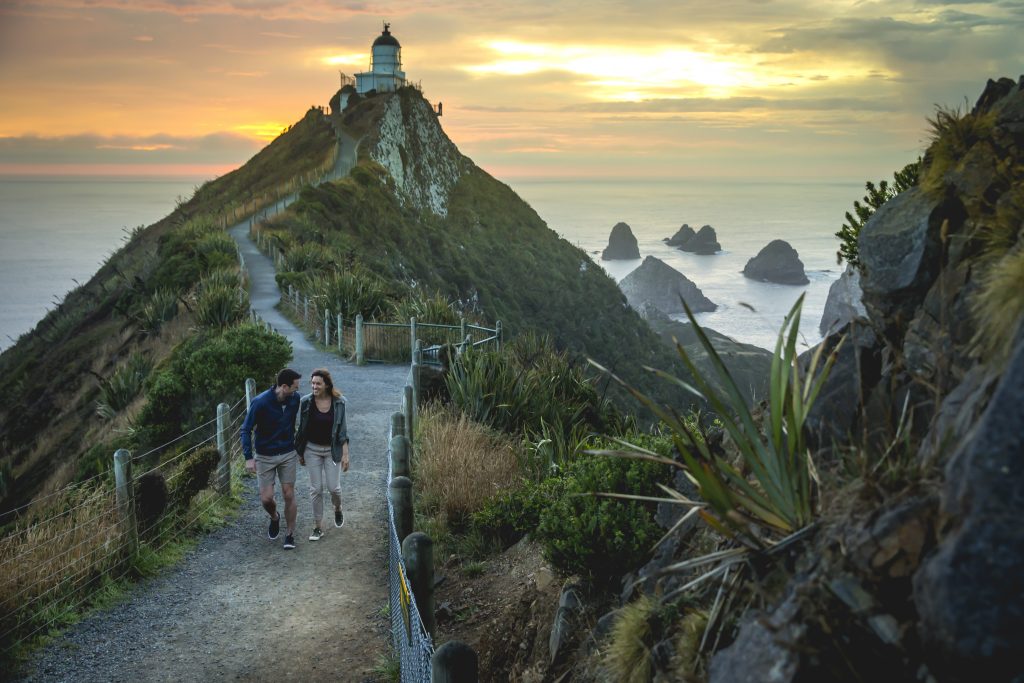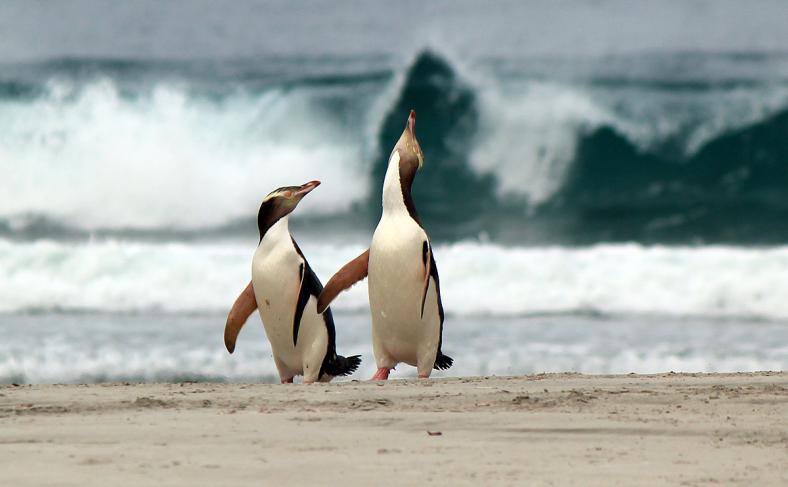Startup Dunedin……..what’s the story?
Dunedin is gaining a reputation for many things; wildlife, culture, food, street art, education and……..entrepreneurship. We caught up with chief story-teller and Marketing Manager of Startup Dunedin, Angus Pauley about what they do, and where Otago students can get involved. He’s very passionate about Dunedin and the start up community, so it comes as no surprise to us that this energetic and enthusiastic young man is one of our very own University of Otago alumni! Take it away Angus!
How to make Dunedin thrive
Every successful startup ecosystem has certain components which help it thrive. We look at successful startup ecosystems to see what we can recreate, improve and support to give Dunedin the same level of success.
What does Startup Dunedin do?
Startup Dunedin is a non-profit organization which coordinates the growth of the Dunedin startup ecosystem. We serve Dunedin based founders by providing the connections, resources and support they need to succeed. This includes initiatives we run, and connection to the initiatives other leaders drive in our city.
Students are a key component
Students are a key part of the startups in our city. They might become founders themselves through a programme like Audacious, or work in a startup as a consultant, intern or employee. Although only some students carry on with the ventures they start at University, all of them use the opportunities and entrepreneurial learning as a springboard for their career. So, how can students get involved?
Audacious
Audacious is a programme for students who want to build the skills and confidence to make a positive impact – whether they’re planning on working in a company, starting their own business or still figuring it out.
Each cohort runs semesterly and consists of a series workshops, culminating in a pitch evening for a cash prize. All the workshops are available online so students can choose to attend as many or as few as they like before pitching with their team at the final event.
Also, students have access to Dunedin’s top business leaders who mentor and judge throughout the programme. This makes it an even more valuable experience, whether the participant wants to start their own startup, or move into employment.
The Distiller
The Distiller is Startup Dunedin’s early stage startup coworking space. It is located on campus next to the executive residence and overlooks the Leith river.
The Distiller provides desk space to early stage startups as well as all amenities including wi-fi and most importantly, coffee. Residents are encouraged to share their experiences as well as the office space. Sharing the good and bad means founders can move past their problems faster and learn from each other’s mistakes.
FoundX
FoundX is Dunedin’s premier startup event. Investors, founders, business professionals, students and local government come together to listen to a fireside-style chat and hear pitches from Dunedin’s emerging startups. The event livestream has an international audience and the evening provides a great networking opportunity with the local business community.
Startup Weekend
Startup Weekends are 54-hour long events where a range of people, including developers, designers, marketers, students, startup enthusiasts, come together to share ideas, build products and launch startups. Teams go from an idea scrawled on a napkin to a working prototype and even paying customers, all within a single weekend. Whether you’re looking for a taste of entrepreneurship, professional development, to join a team long term, or just have some fun – Startup Weekend has something for everyone.
Thanks for explaining to us Angus what Startup Dunedin is all about – we may be a small city size wise in Dunedin, but we are mighty, and there is plenty of fresh thinking and creativity going on behind the scenes. As our local council advertise ‘Dunedin is NZ’s best kept secret.’
Nicky Richardson is an International Marketing Coordinator at the University of Otago. With degrees in music and marketing, she is a recent graduate of Otago herself – she loves Otago so much she ended up getting a job here!
Just because we can, does it mean we should?
In today’s world, more than ever before we require people who are trained in an interdisciplinary nature so that they can ask the hard questions like the title of this blog; “just because we can, does it mean we should?” This kind of dilemma is one that people will increasingly face as science and technology continually allow us to achieve what was once deemed impossible. The University of Otago has taken this into consideration and developed an interdisciplinary degree called the Bachelor of Arts and Science (BASc) and we’re going to take a closer look at it in today’s blog post.
Humanities or Science?
Traditionally universities around the world have encouraged students to specialise in either science or the humanities. There just hasn’t been an option of being able to do both and quite frankly it is extremely limiting to those students who can do both. Thankfully, Otago has always been very flexible when it comes to degree structure and students have long been able to include some humanities papers in their science degrees, and science papers in their arts degree. They have also been able to do a double degree which would usually take five years, but now students at Otago have another option that mixes both disciplines with the BASc – it allows you to have a science or an applied science major and an arts major but it only takes four years.
Subject options
We have a reputation here at Otago of being very flexible when it comes to course choices and degree structure and if you’re looking for a degree that offers a multitude of subject options then the BASc is definitely the one for you – there are about 1500 possible combinations of major subjects available so you really don’t just have to fit into one box with this degree!
Well rounded individuals
One of the reasons the University of Otago has developed this degree is to give employers more of what they want – well rounded individuals who are not only educated in their chosen field, but as mentioned in the introductory paragraph individuals who can see the world from different views or paradigms. Artificial intelligence, genetic manipulation, areas of study that are become increasingly advanced and potentially useful, but areas that are not without risk. The world needs people that can understand the science of an issue but who are also aware of our very human nature and what we have learnt from our past experiences and mistakes.
Follow your passions
Whilst some degrees and programmes will ultimately place you directly into a job in a chosen field sometimes the best way to find your chosen career path is to follow your passions. The BASc will allow you to do this, and as Associate Professor Lisa Ellis, Philosophy Lecturer and Bachelor of Arts and Science Adviser states: “You are better prepared if you follow your passions and develop yourself intellectually…..you are much more attractive to an employer.”
Nicky Richardson is an International Marketing Coordinator at the University of Otago. With degrees in music and marketing, she is a recent graduate of Otago herself – she loves Otago so much she ended up getting a job here!
5 things you might not know about the University of Otago….
As we rapidly approach 2019 and the University of Otago’s 150th birthday celebrations, it seems like a good opportunity to delve into the archives to find out some not so commonly known pieces of information about the university. I have asked around and here are 5 hidden gems that you might not know about the University of Otago.
Gargoyles or Grotesques?
Perched high above the Archway (which was once the formal entrance to the University) are a series of grotesques, each representing the various branches of learning available at the university at the time. They have been named gargoyles but the distinction lies between the fact that a gargoyle functions as a water spout to divert rain from the buildings, whereas a grotesque is purely decorative and involves either fanciful animal and human forms often distorted to be ugly and absurd.
Rumour has it that the grotesques were modelled on academic staff of the time……but that has never been confirmed. The man responsible for these unique little design elements was Edmund Anscombe (1874-1948), the university’s architect from around 1909 to 1929. While Fletcher Brothers won the tender to construct the Archway with a price of £10,292, the stonemason who carved the grotesques is unknown.
Otago’s oldest building
When you look at our gorgeous campus it is easy to assume that the oldest buildings are the old stone buildings in the centre of campus, but as the university expanded over time it began to acquire neighbouring properties which ranged from tiny cottages to larger homes.
Some were demolished, but some still survive, including what is widely deemed to hold the title of ‘oldest building on campus.’ Mellor House, one of the old Union Street houses which is now home to the Department of Psychology was originally built in 1862 for Thomas Calcutt, a printer who migrated from England to Otago in 1858.
Cry me a river……of tears
These beautiful black gates were originally the main entrance to the campus, as the entire campus was once contained within the ‘Quad’ which you can see immediately beyond the archway.
This stone corridor houses display boxes on the left which now contain information about events around the university, but their original purpose was for the public display of exam results. Hundreds would gather to view their results and many a tear was shed when the marks were not positive, hence the archway being coined ‘The Corridor of Tears’ or the ‘Tunnel of Tears.’
The archway links the Allen Hall building (completed 1914, it was originally the Students’ Union) to the former School of Mines building (completed 1909, which is currently home to the International Office and where I am writing this blog). The entire group of buildings was designed by Edmund Anscombe the architect for the majority of the University buildings from 1909 to 1927.
The original site of the Dunedin Botanic Gardens
The Water of Leith which runs through the university campus is not always this tranquil, and this was certainly the case when in February 1868 floods washed away bridges, and about an acre of gardens – at this point in history this site was home to the Dunedin Botanic Garden. This saw the Botanic Garden moved further north to their current site, and the university was able to purchase the land and develop it in the 1870’s. Some of the trees in front of the clocktower are indeed older than the buildings themselves as they are a reminder of the original inhabitants of this site.
Students have always pushed the boundaries
Each generation that passes seems to muse on the fact that the younger generations are less respectful, more verbal and opinionated and more willing to push the boundaries, but it appears that students, or indeed the younger generation have always held this inclination.
The image above was taken from the desktops of the oldest lecture theatres on campus – in both Geology and the clocktower. As you can see from the dates, some of this is very old indeed, with J.H. (John Harpur) Moir making his mark in 1886-1887. Mr Harpur graduated with a B.A in 1890 and became headmaster of Dunedin’s Normal School.
The full installation, complete with plaque now features on the south wall of the council chambers in the clocktower building, and it really is a remarkable and historical sight to see, some of the graffiti is embedded so deeply into the wood, it must have taken hours!
Nicky Richardson is an International Marketing Coordinator at the University of Otago. With degrees in music and marketing, she is a recent graduate of Otago herself – she loves Otago so much she ended up getting a job here!
5 reasons why studying in NZ is a smart choice!
On a previous blog this month we discussed the 5 main reasons we believe Dunedin is an awesome place to be, but now we’re looking a little bit wider and we want to talk about our top 5 reasons that make New Zealand a great place to study and get qualified!

An Otago degree opens doors around the world, and graduation day is a day that Otago likes to celebrate.
When you choose New Zealand as your study destination you’re making a smart choice because you will receive a world-class education, and don’t just take our word for it! All eight of New Zealand’s universities including the University of Otago are in the top 3% in the world. Something that sets us apart here at Otago is the personalised and practical approach to learning and teaching. Students get hands on experience from research led teaching so the information they are receiving is the very latest, studying at Otago means you are always on the edge of what is known and what is being discovered. The other major point to make is that New Zealand university qualifications are recognised and respected globally meaning it can open career pathways and doors for you around the world.
New Zealand is insanely beautiful. Like, yes……RIDICULOUS…. The Lord of the Rings was filmed here. Need I say more. Of course, we still have some larger cities that aren’t quite as pristine, but you needn’t travel far geographically in New Zealand to find yourself in a picture book paradise. And alongside this, is the opportunity to get into the outdoors and experience a lifestyle that is truly freedom. And we aren’t all just paddocks and flocks of sheep, yes, you will definitely find that here, but we have become a lot more sophisticated over the last decade or so and developed our own unique New Zealand sense of café culture, art, food and fashion.
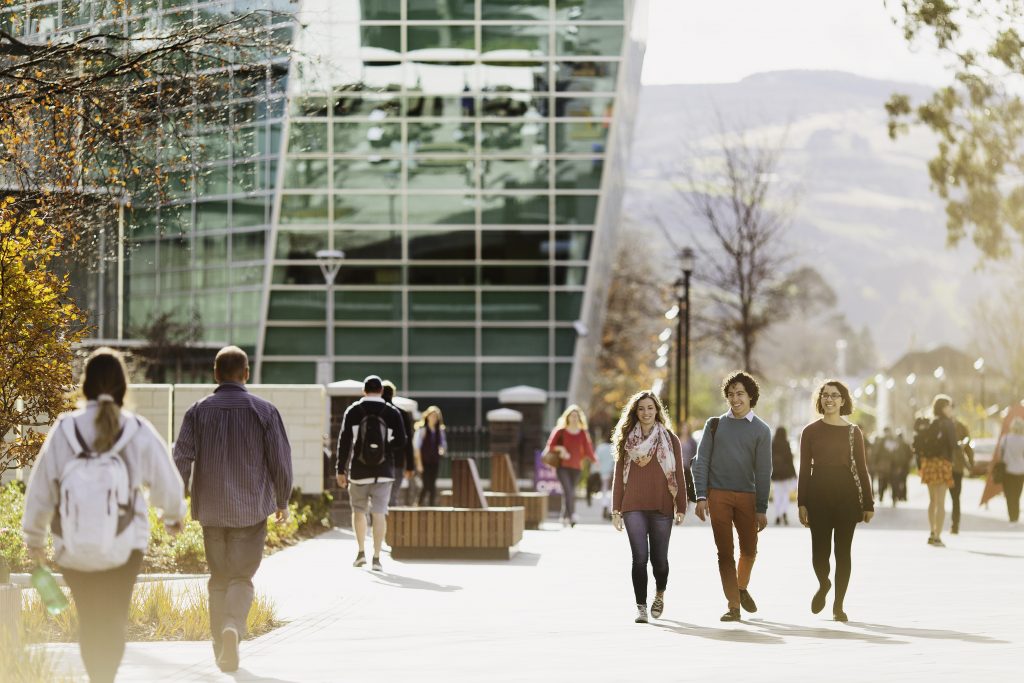
Students feel safe, with a sense of personal freedom as they walk around the Otago University campus.
We have always been a very safe country. In fact, we are the world’s second most peaceful country (Global Peace Index, 2017). And the concept of safety if you are a born and bred New Zealander is just something that we have taken for granted. We are used to feeling safe, and up until the digital age we were probably somewhat blissfully ignorant that many parts of the world are going through, and have been living in turmoil through war and unrest. So the decision to bring yourself to the other side of the world means you want to know that you are not coming into danger.

Lower cost of living and a perception that you are getting good value for money is a recurrent theme amongst international students.
Money! Having interviewed countless international students on their motivations to come and study at Otago University, it is clear for many that money and perceived value for money is a very important part of the decision making process. The international student recruitment market is a highly competitive one, and when it comes to cost New Zealand has lower living costs than many other countries. Also if you are a PhD student thinking of coming to study in New Zealand you will pay the same amount of fees as a domestic New Zealand student. Plus, if you choose to study in New Zealand there are opportunities for you to not only study, but work part-time as well.
We are generally a friendly bunch of people. Well, certainly down here in the South Island (Te Waipounamu). If you’re an international student it may seem strange that we say hello, Kia ora, smile or generally engage when we are out and about on campus, but that’s just what we do here. International students are always surprised by this friendliness, and once they feel confident enough to start saying ‘Kia ora’ which roughly translates to ‘good health to you’ in Māori, one of our three official languages, smile and start engaging, life will definitely start opening up. If you’re thinking about studying overseas consider these factors and get in touch if you’d like to know more.
Nicky Richardson is an International Marketing Coordinator at the University of Otago. With degrees in music and marketing, she is a recent graduate of Otago herself – she loves Otago so much she ended up getting a job here!
5 reasons Dunedin is an awesome place to be
Dunedin’s population has surged past 130,000 people for the first time according to Stats NZ. So why are people choosing to come and live in this city on the east coast of New Zealand’s South Island? Dunedin has in the past, and still does have according to some media outlets the reputation of being cold, wet and miserable. But if you look at the statistics from NIWA Dunedin’s mean annual rainfall is 812 millimetres, compared to Auckland’s 1240 millimetres so that reputation isn’t really warranted is it? So what makes Dunedin such a great place to live, study and work in? Here are our top 5 USP’s (unique selling points) for our little city!
1. It’s so pretty. Yes, it really is as pretty as the pictures! And as recent as last month Dunedin was named the most beautiful city in NZ in the Keep New Zealand Beautiful Awards. The early Scottish settlers that mapped out the city’s footprint made sure that Dunedin had an array of beautiful parks, and areas of greenery throughout. An area known as the ‘Town Belt’ is literally a green belt of native and exotic trees that runs through the city, and even when you’re in the city just look above the buildings and Dunedin is surrounded by green hills. Plus, if you want to go a little off road, a 10-minute drive from the city centre and you will find yourself literally feeling like you are completely away from all forms of urban life. Mountain biking and trail walking and running tracks are all right on your doorstep.
2. Dunedin is a quirky, artistic and entrepreneurial city. We have a street art trail, where 30+ walls have been adorned with art from visiting artists from around the world and New Zealand. Dunedin is home to artists, musicians, internationally recognised fashion designers, an annual fashion festival week, and writers, in fact Dunedin was the first city in New Zealand to initiate a writer’s fellowship, and is now a UNESCO designated City of Literature where writers, books and literature thrive. Dunedin is also gaining a reputation as the perfect place for start-up businesses to thrive and collaborate. And in the deep of winter Dunedin celebrates as only Dunedin can by lighting up the city with a mid-winter carnival complete with fanciful, ethereal and elaborate costumes and lanterns.
 3. The University of Otago. Dunedin is a University City which adds to its appeal in regards to the research, literature, culture and people that are attracted to come here to study, research and teach. Otago University is New Zealand’s first University and has a reputation for both academic excellence matched with an extraordinary lifestyle and balance.
3. The University of Otago. Dunedin is a University City which adds to its appeal in regards to the research, literature, culture and people that are attracted to come here to study, research and teach. Otago University is New Zealand’s first University and has a reputation for both academic excellence matched with an extraordinary lifestyle and balance.
4. Weekend travelling. Getaway in the weekends to some of the most untouched, natural scenery in the world and a range of outdoor pursuits. Dunedin is the gateway to some of the most ridiculously beautiful scenery you are likely to encounter. Fiordland National Park, Central Otago, including Queenstown, Wanaka and Arrowtown, or travel a couple of hours south of Dunedin and you enter the dramatic and wild Catlin’s area.
5. Dunedin is NZ’s wildlife capital. Yes, I know, that is a very big call to make, but we aren’t the only ones saying it. Sir David Attenborough from the BBC states: “Otago Peninsula and Taiaroa Head is a unique and very special place. It is a place that every visitor to Dunedin should see.” Dunedin is situated around a natural harbour and adjacent peninsula and it really is the jewel in our crown. We have the only mainland breeding grounds for Royal Albatross in the world, NZ fur seals, sea-lions, rare and endangered Yellow Eyed Penguins also choose to call the Otago Peninsula home. And because Dunedin people are the kind of people who care about the lives of our feathered and furry friends, we have a wildlife hospital. On the other side of the Peninsula is Orokonui Ecosanctuary a local initiative that saw a dream of creating a predator free area of native forest become a reality. Orokonui now houses some of NZ’s most precious living taonga (treasures) and is contributing to the conservation and regeneration of our endemic birds and reptiles.
Dunedin is an interesting little city with a warm heart and welcoming inhabitants. Almost anyone can find their little piece of happiness here. It it is also a place with mysterious secrets than only locals know…..but thats a story for another day.
Nicky Richardson is an International Marketing Coordinator at the University of Otago. With degrees in music and marketing, she is a recent graduate of Otago herself – she loves Otago so much she ended up getting a job here!


